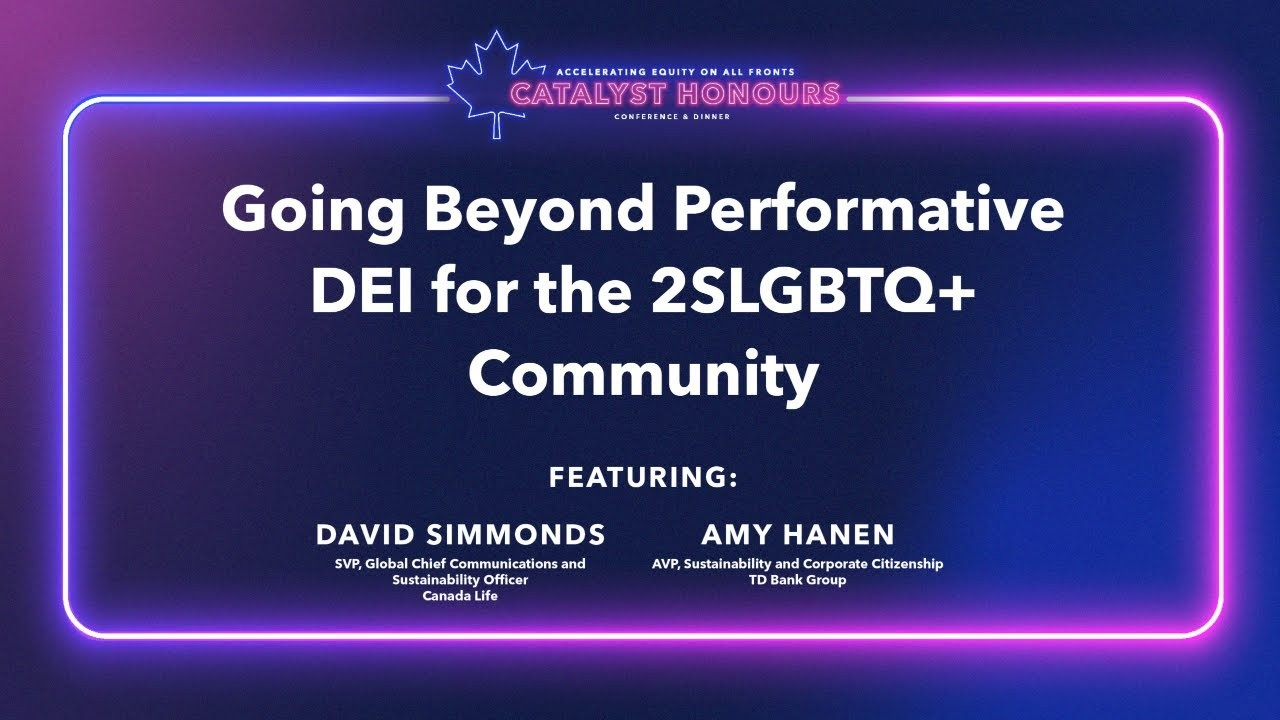Move beyond performative allyship for your 2SLGBTQ+ employees
7 min. read & watch
| Published onOn the 2023 Catalyst Honours main stage, Dr. Julie Cafley, Executive Director, Canada, reported a troubling statistic from Catalyst research: 75% of employees perceive that their organization's DEI policies regarding racial equity are not genuine. At a time of rising anti-2SLGBTQ+ demonstrations and violence in North America, as reported by ACLED, performative DEI policies risk alienating their employees and allowing bias to go unchallenged in the broader Canadian cultural conversation.
In the conference session "From Flags to Fulfillment: Failing Forward on 2SLGBTQ+ Workplace Inclusion to Advance Concrete Change," Cafley moderated a conversation with 2SLGBTQ+ advocates David Simmonds, SVP, Global Chief Communications and Sustainability Officer, Canada Life and Amy Hanen, AVP, Sustainability and Corporate Citizenship, TD Bank Group. Together, the panel explored how organizations can move beyond performative allyship to take action that drives meaningful inclusion and belonging for 2SLGBTQ+ employees.
